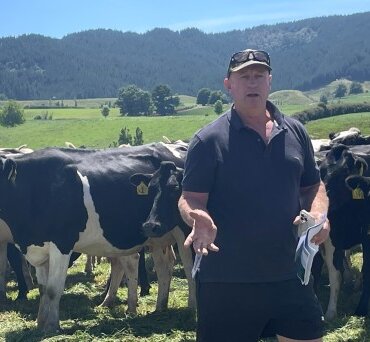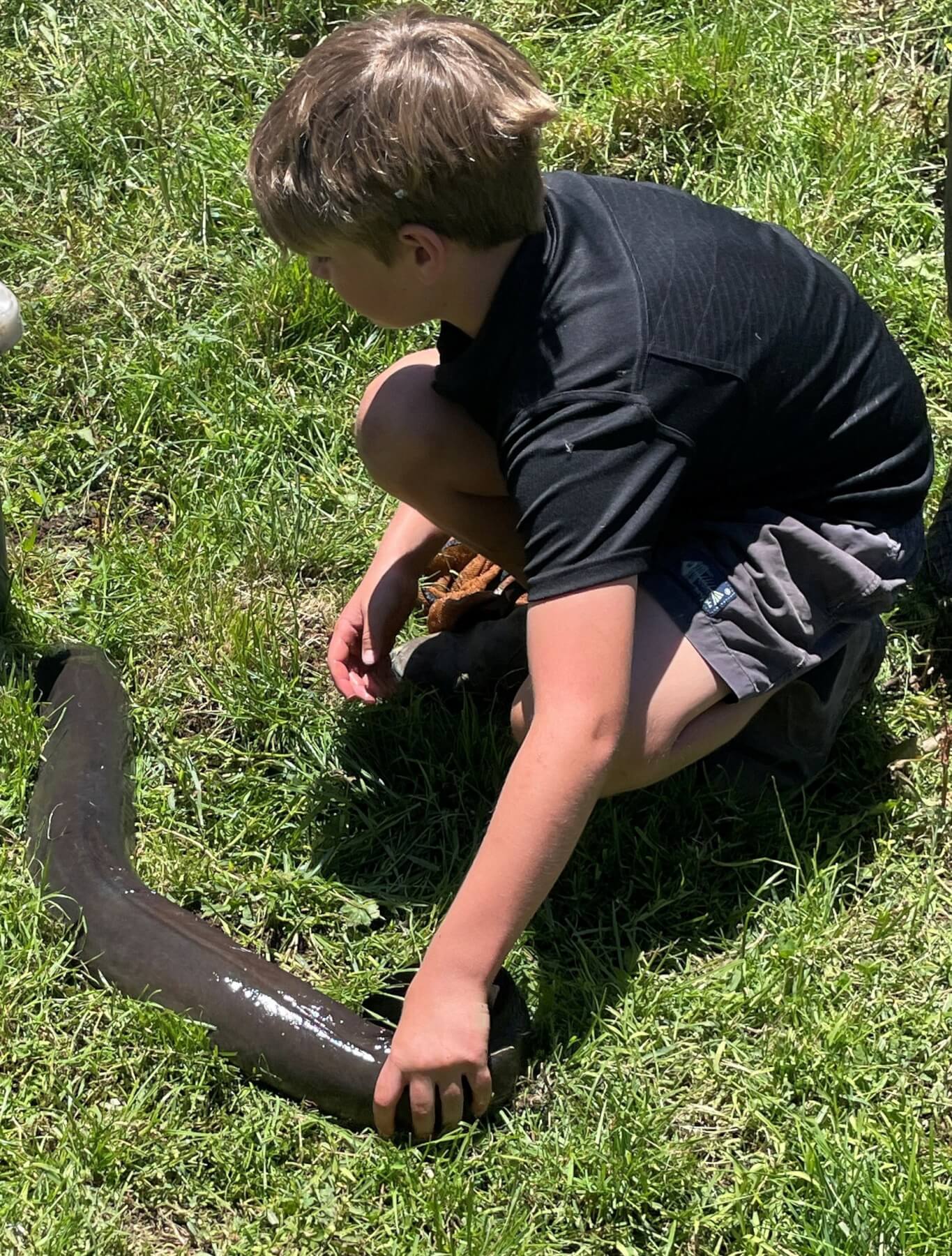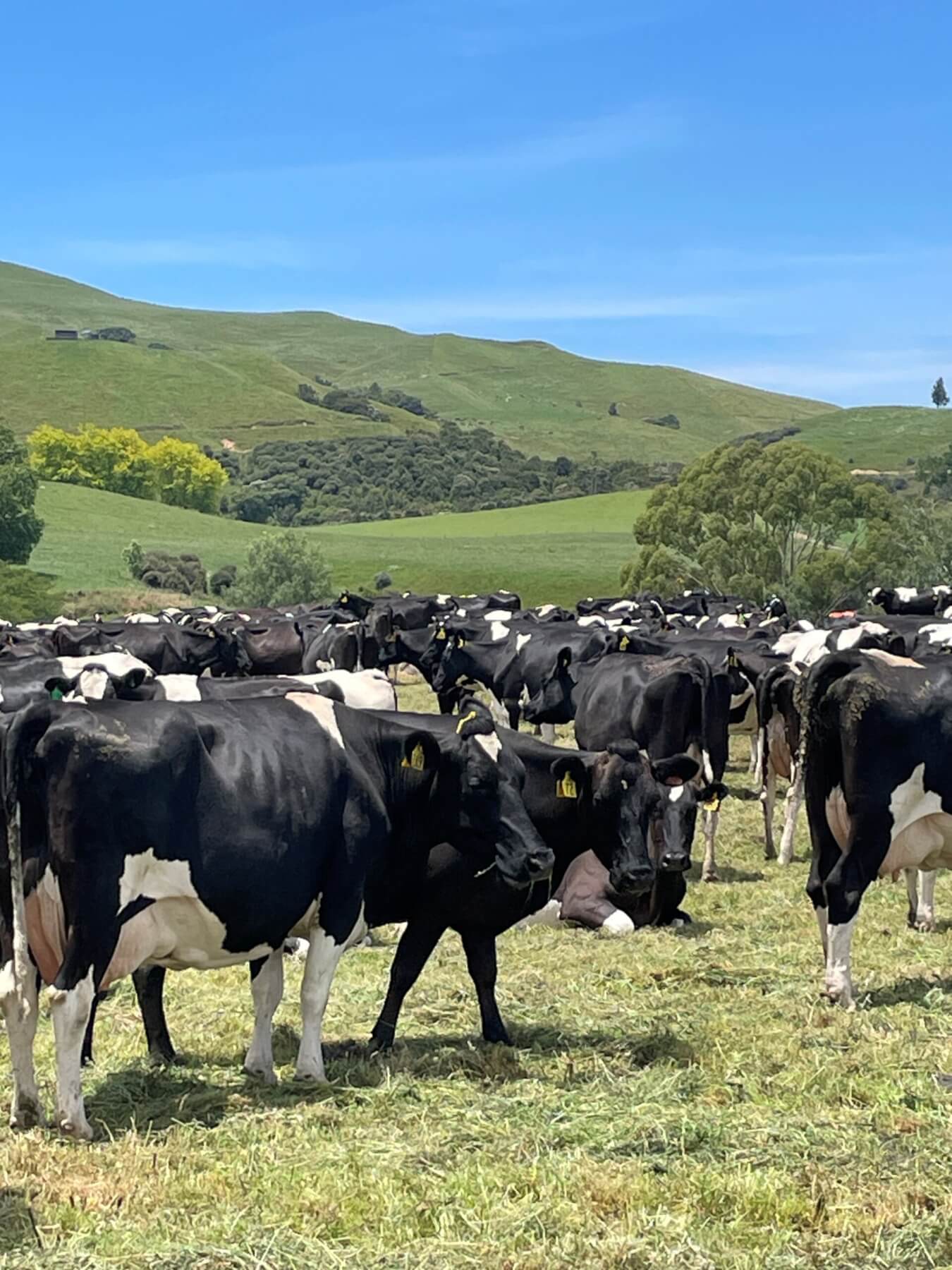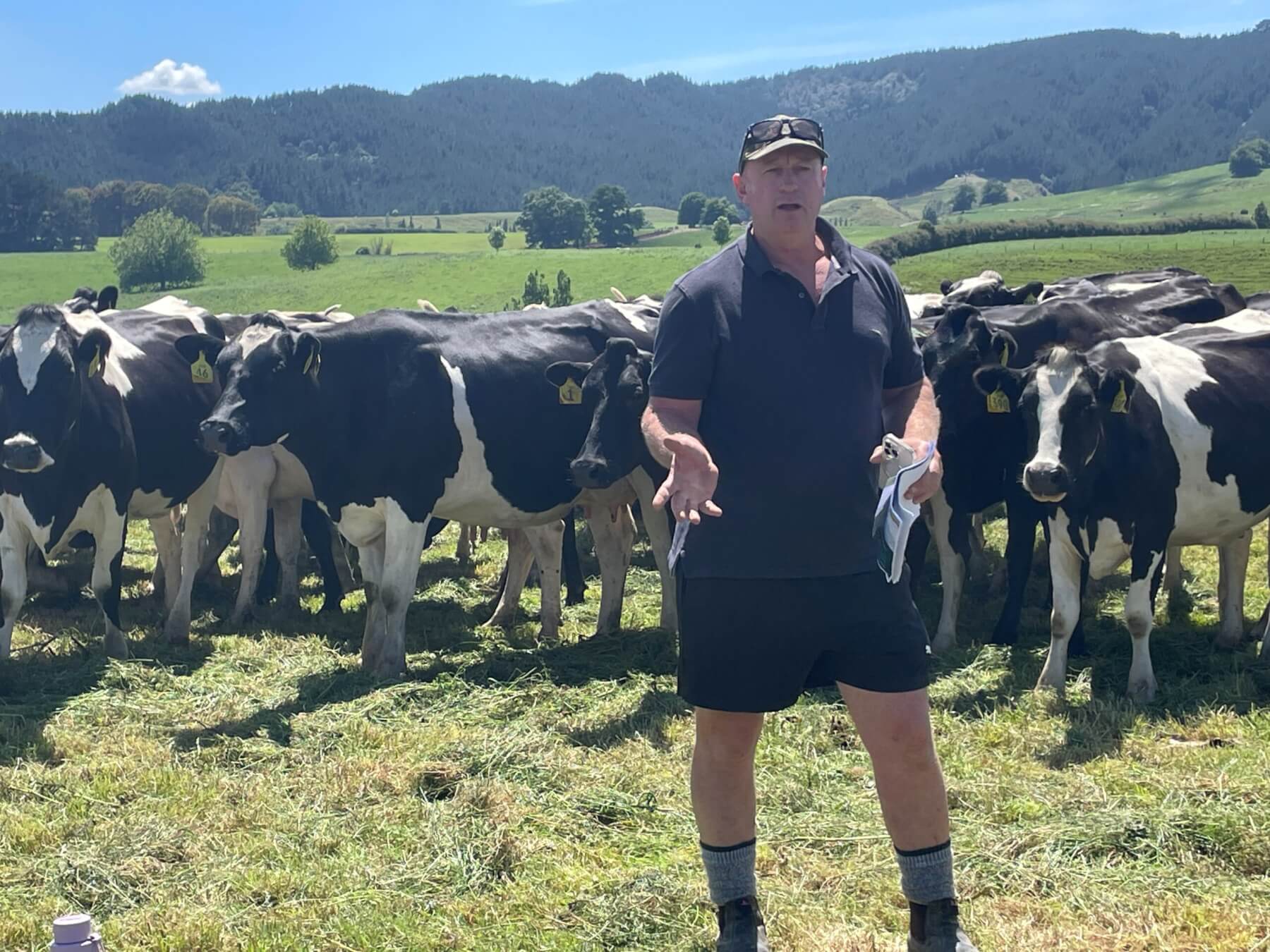
Judge Valley Dairies farmer John Hayward
“That eel has been here longer than I have,” says Judge Valley Dairies farmer John Hayward.
“That’s exciting,” Hayward told the audience he welcomed onto his Judge Rd, Roto-o-Rangi, farm near Te Awamutu for a DairyNZ led event on maintaining healthy waterways and profit.

Jack Hayward, 10, inspects a 30-year old longfin tuna on his parents’ farm.
The longfin tuna was one of about 30 seen swimming in the stream flanked by flax he had planted. Half a dozen were caught with an electric fishing machine to demonstrate stream health on the farm.
It was estimated to be just over one metre long and about 30 years old. One day she will swim to Tonga to spawn and her young will return to the Waikato.
Longfin eels can live for 100 years and migrate to the Pacific Ocean to spawn and die as old as 80.
DairyNZ principal scientist Craig Depree said environmental DNA samples had detected six native fish species in the stream on Hayward’s farm. They were common smelt, inanga, cran’s bully, longfin tuna, shortfin tuna and kakahi.
Flax planted by Hayward along the banks keeps water temperature and invasive species down and encourages native species to thrive.
Hayward, who milks 380 cows twice a day with his wife Waipā district mayor Susan O’Regan, has improved farm waterway health through mitigative and restorative action since they purchased the farm in 2008.
Their work has included using the agricultural management tool Overseer to make data-driven farm decisions about efficient nitrogen use, riparian planting on streams, restoring and fencing wetlands to exclude stock.
“I am the farmer, Susan is the mayor,” he quipped.
The 245-hectare farm includes a 140-hectare dairy platform supplying Open Country Dairy. The remainder of the farm is made up of support land for grazing, native and riparian areas.
Hayward told The News he had planted around 30,000 natives on his farm with funding from a Ministry for Primary Industries Afforestation Grant, Waikato Regional Council, and his own funding.

The Judge Valley Dairies herd.
It was not easy to do what he and Susan had done but “what we are doing benefits the whole community”.
One of the biggest issues was sediment loss, he said. A million tonnes a year was lost though New Zealand waterways.
“That’s why we planted our Class 7 land to retain sediment,” he said, to prevent or a least slow down erosion.
The farm’s story was shared in Australia in 2012 as part of the Kids Teach Kids project by O’Regan’s son Ben, now 22, when he attended Puahue School.
The farm went on to becomes supreme winner in the 2016 Waikato Balance Farm Environment Awards after collecting the LIC Dairy Farm Award, WaterForce Integrated Management Award, Waikato Regional Council Water Protection Award and the Ballance Agri-Nutrients Soil Management Award.
Asked by other farmers what his top three farm priorities were, Hayward said: “We have to make money. I am always fiddling with things. Susan says, ‘you have to jiggle with it.’ I can’t help myself. If we don’t make money we are not here.
“We need to have health cows. They are peak.
“We have to be sustainable. If we have a system that is not, we are gone as well.”
The farm includes a hilltop hut from which the pair survey their farm.
“I go up there and see the bird life,” Hayward said.
“This is renewing for me. I drive around the farm and it’s like a garden.”

Judge Valley Dairies farmer John Hayward talks to farmers from among his herd.








